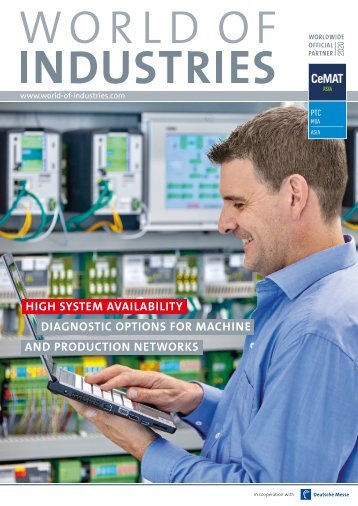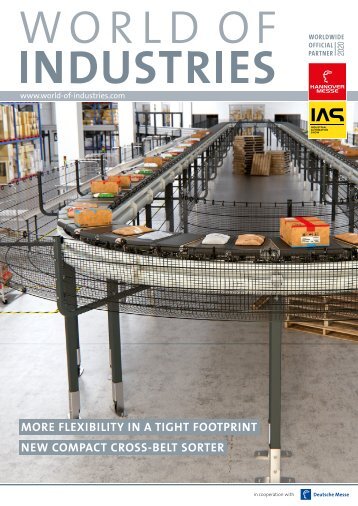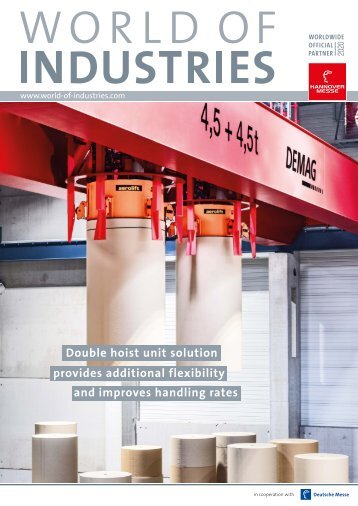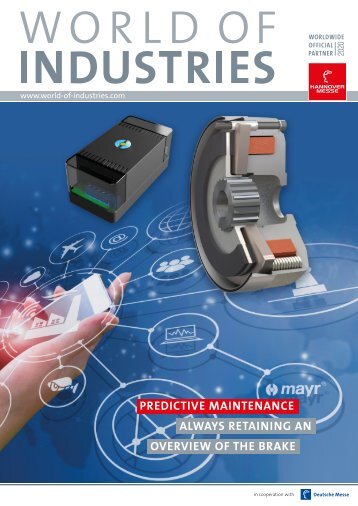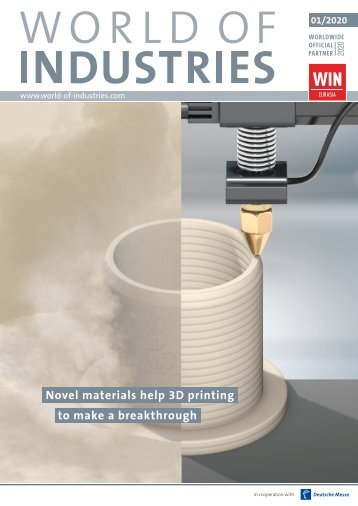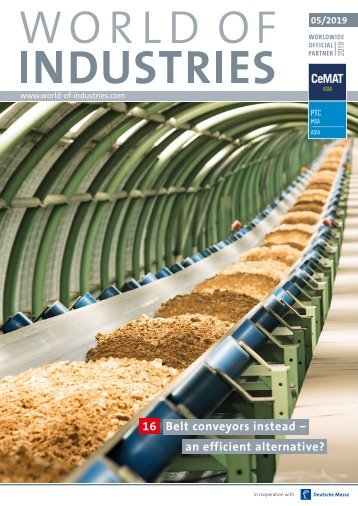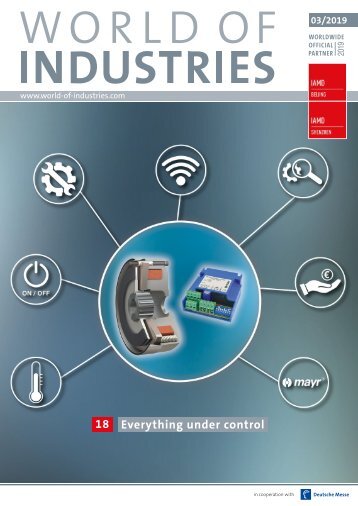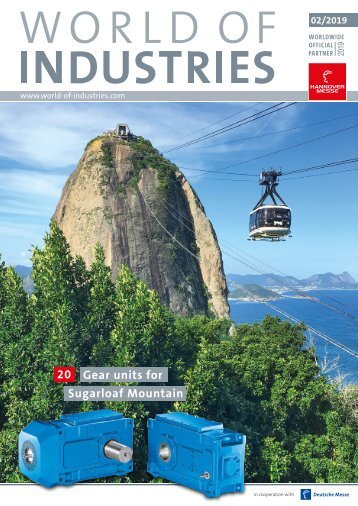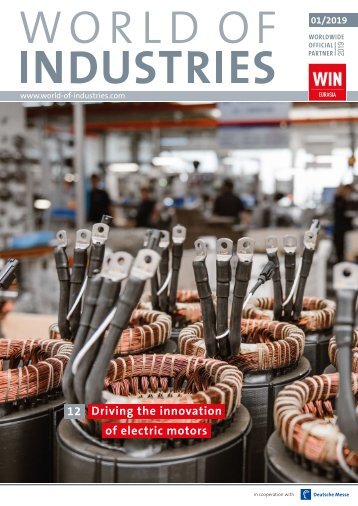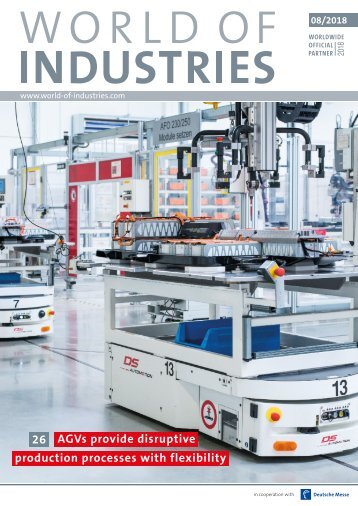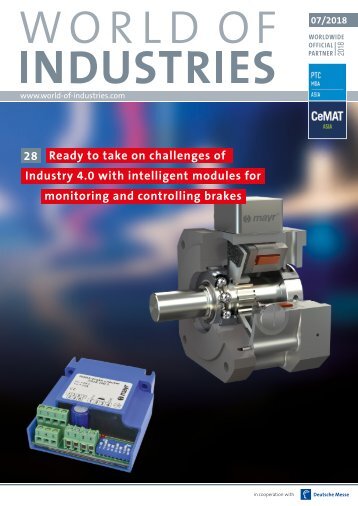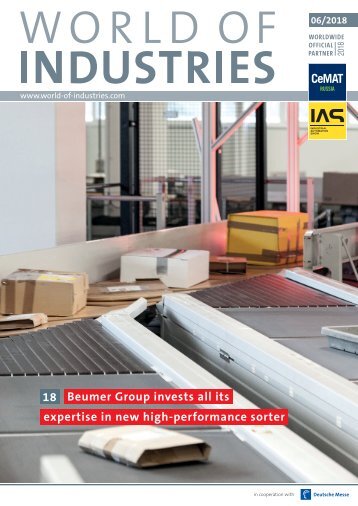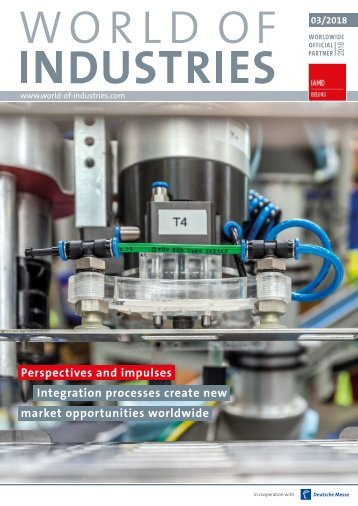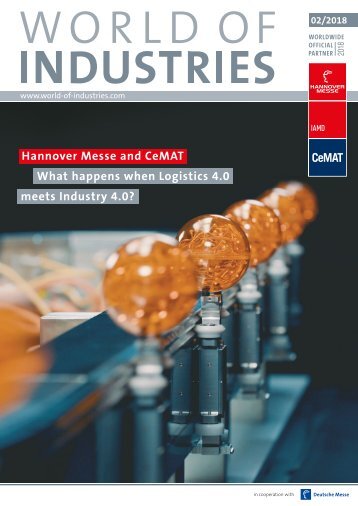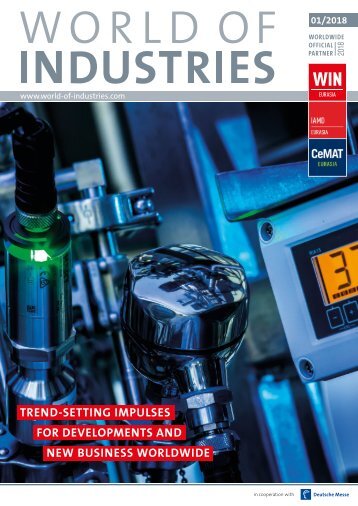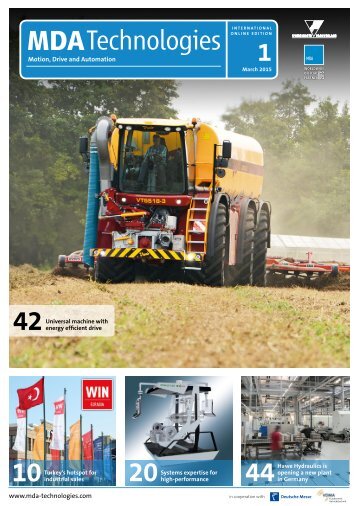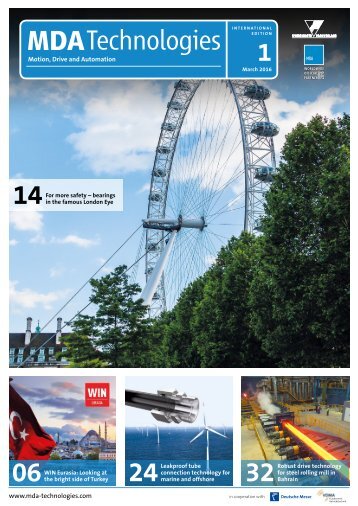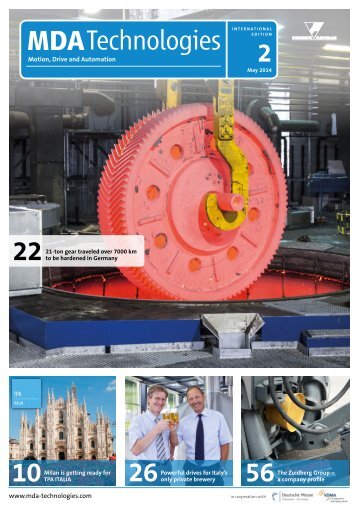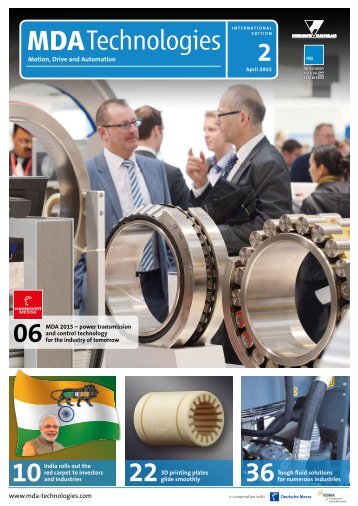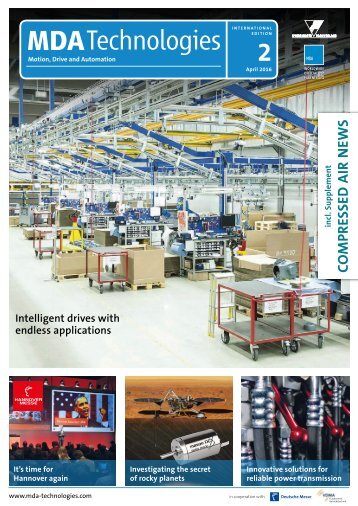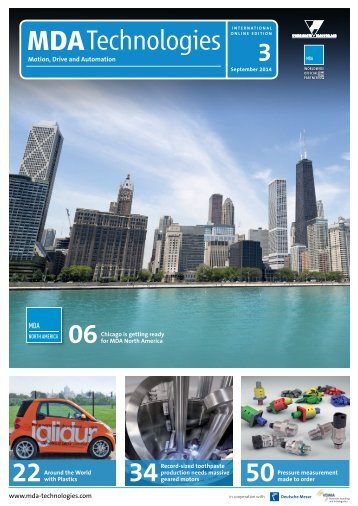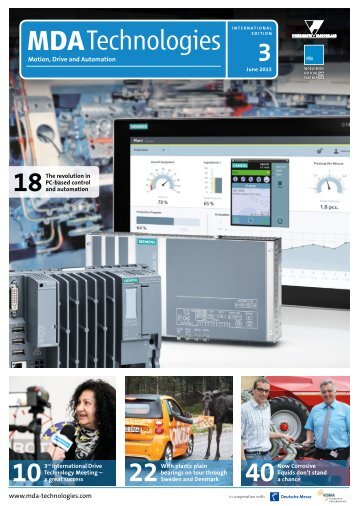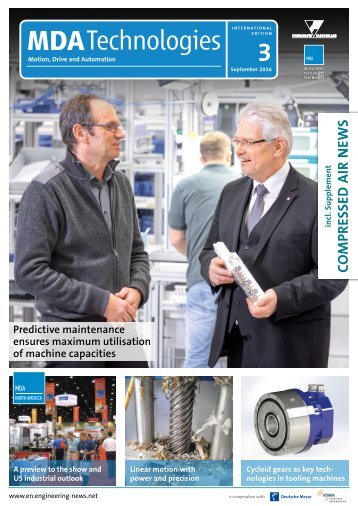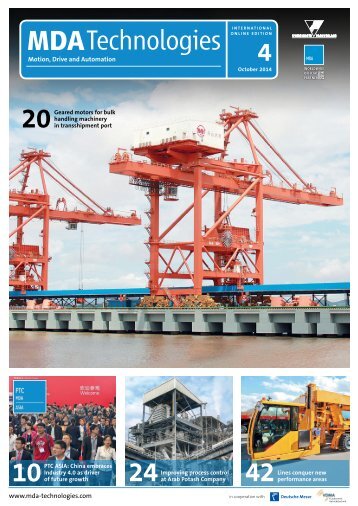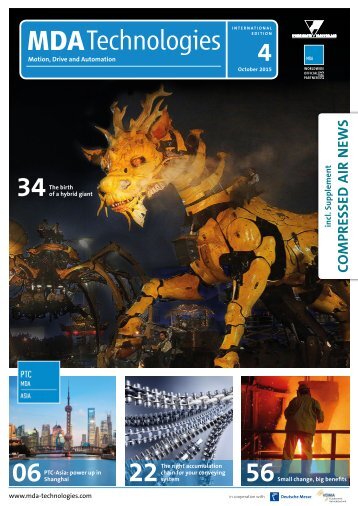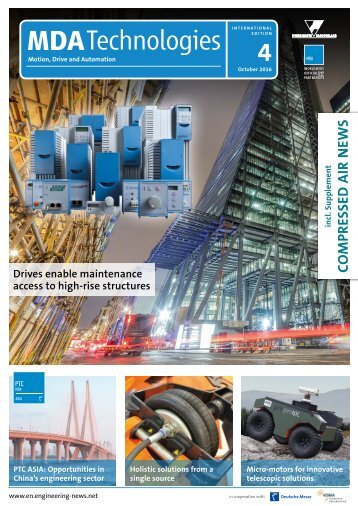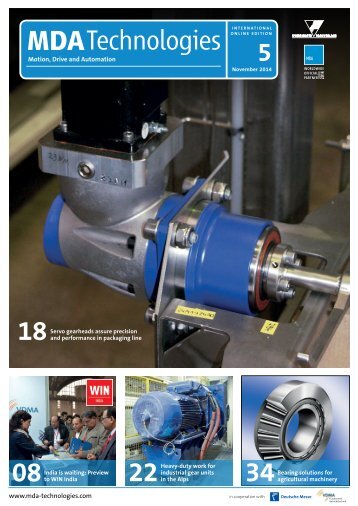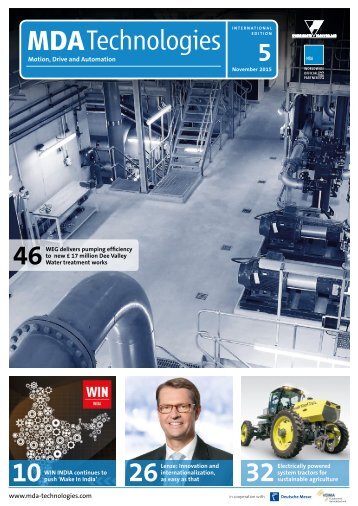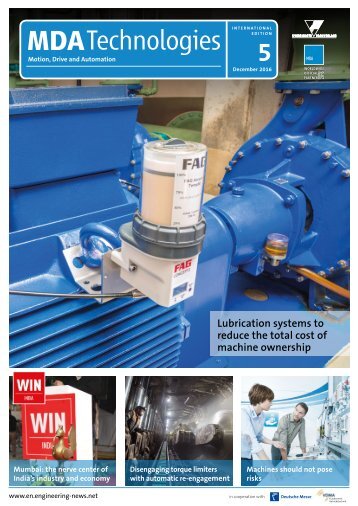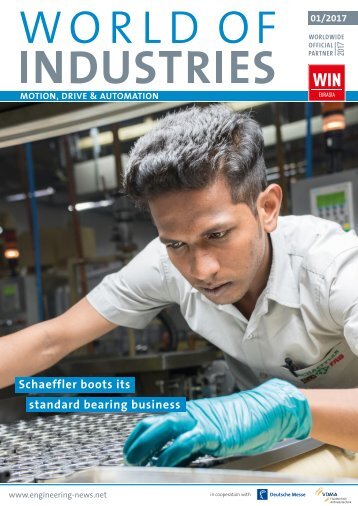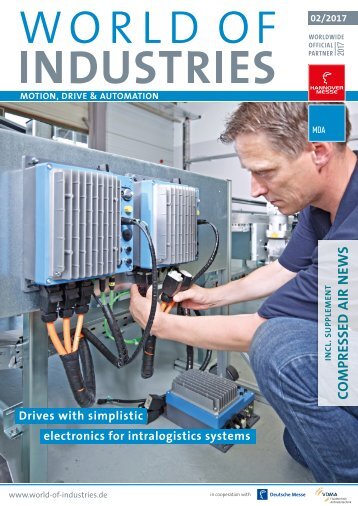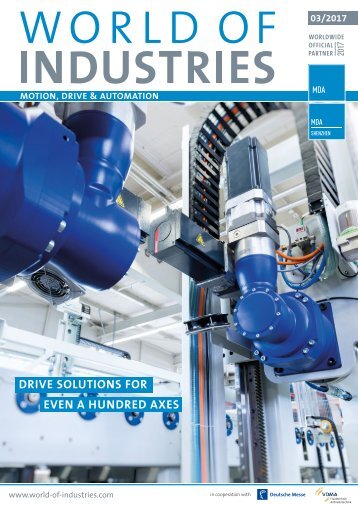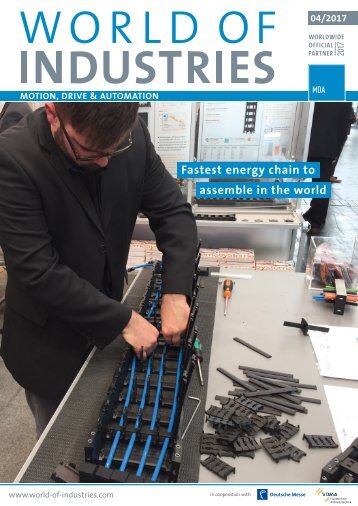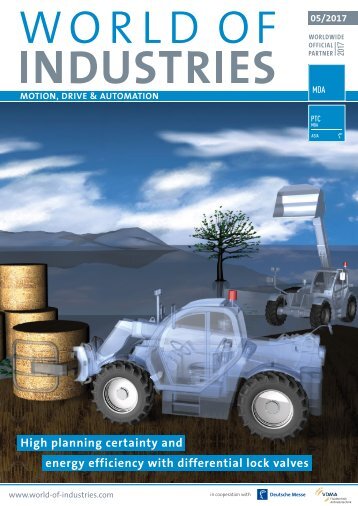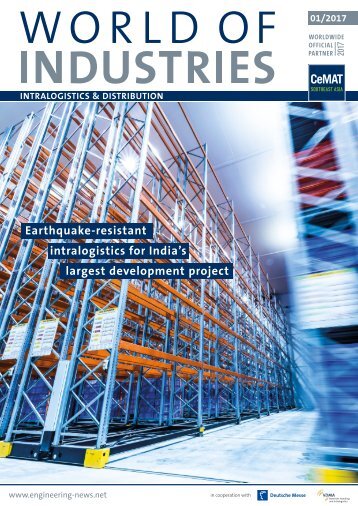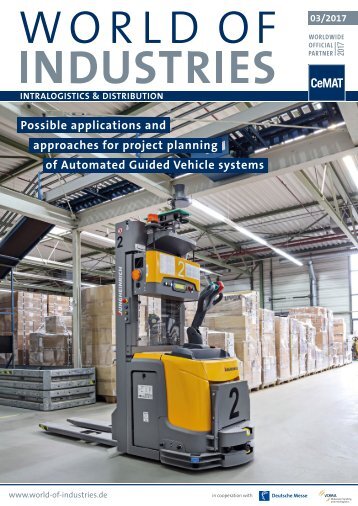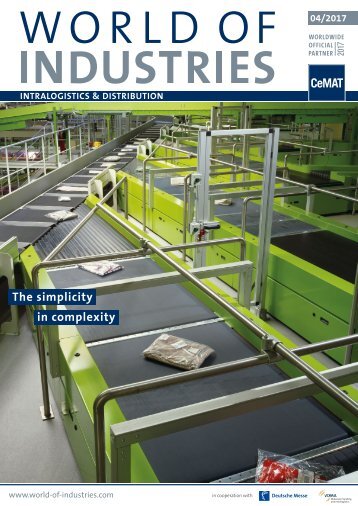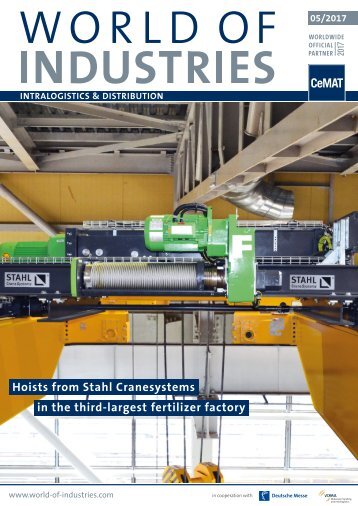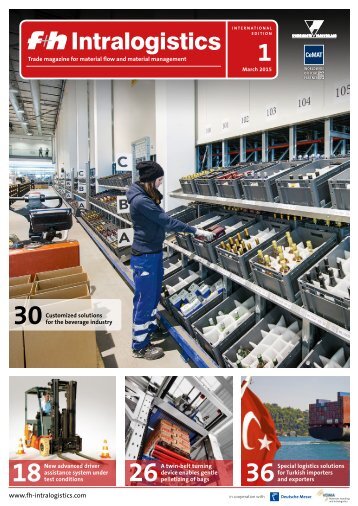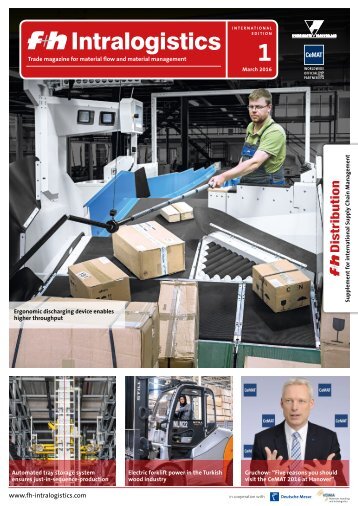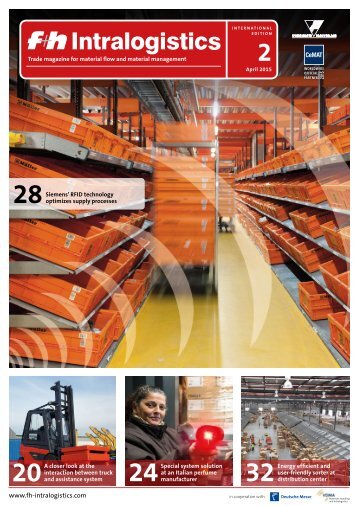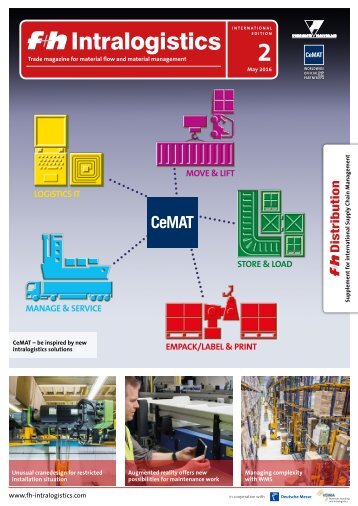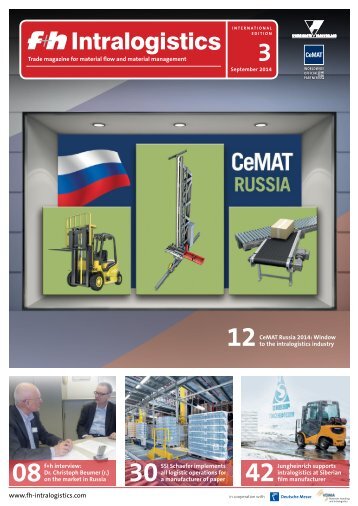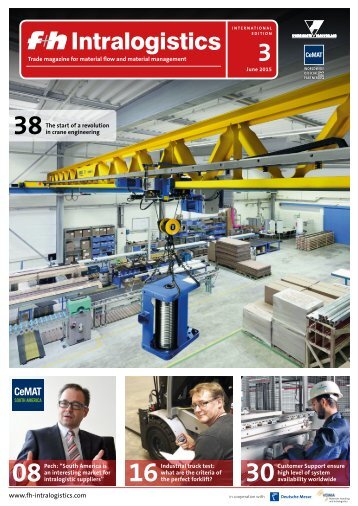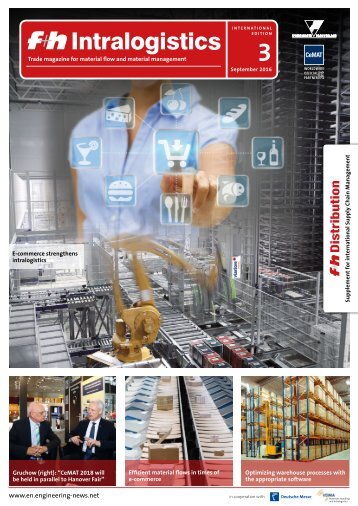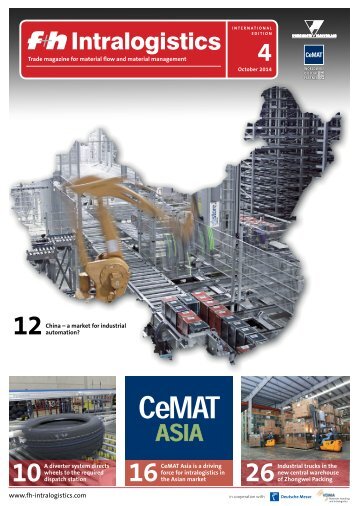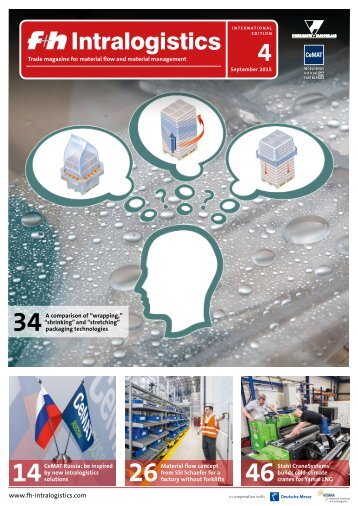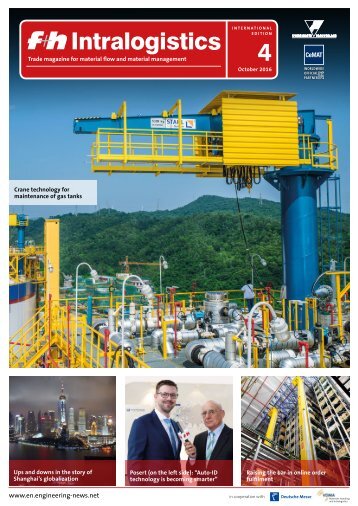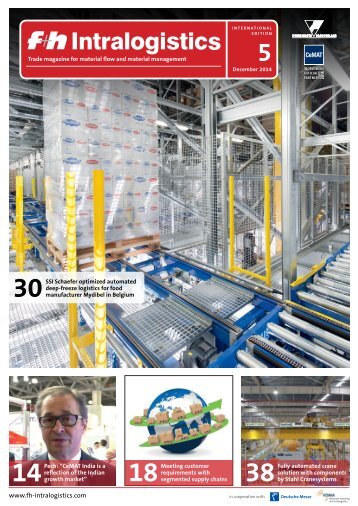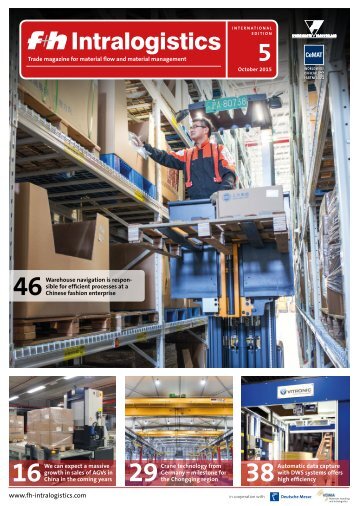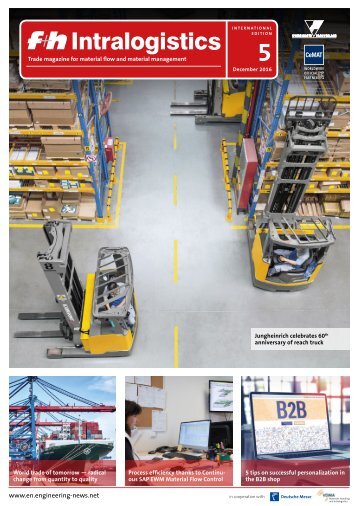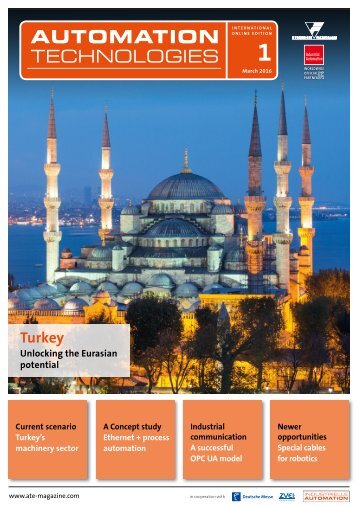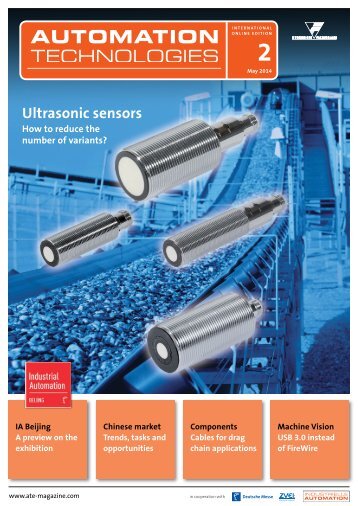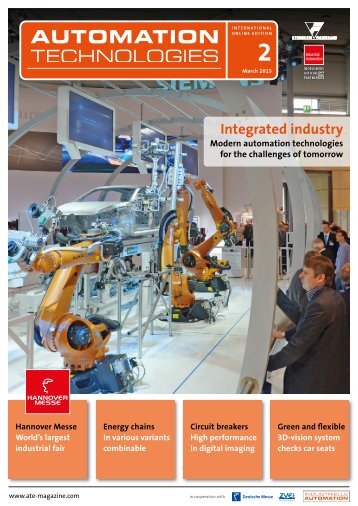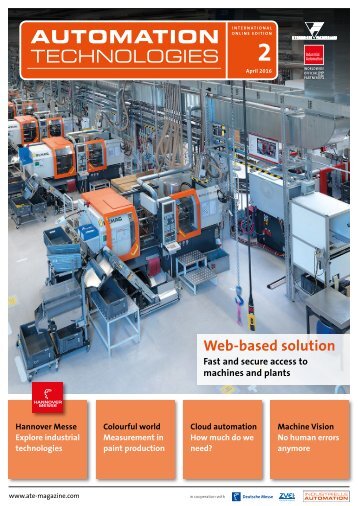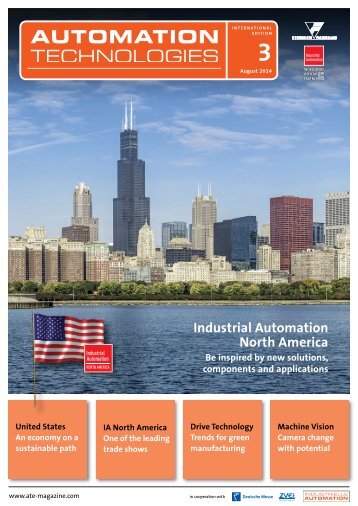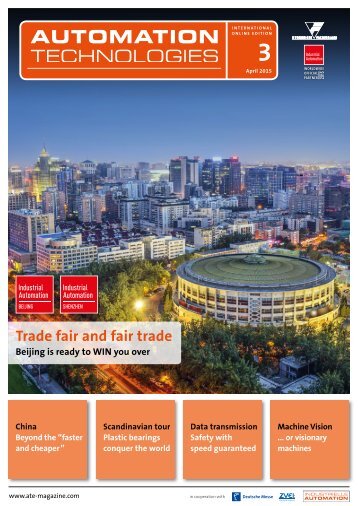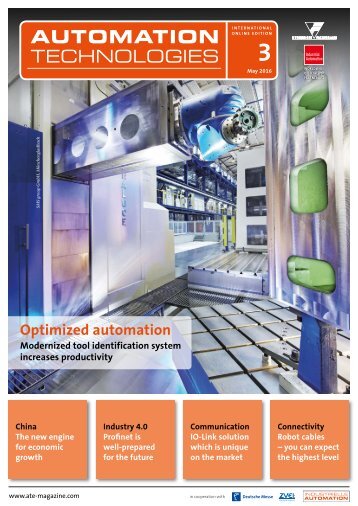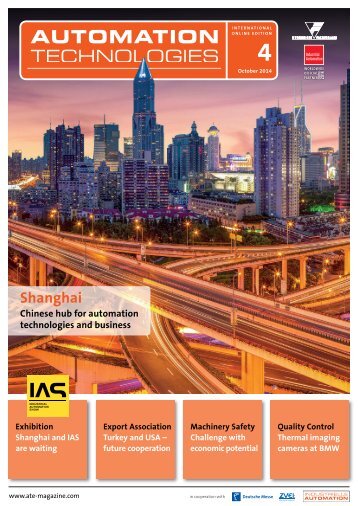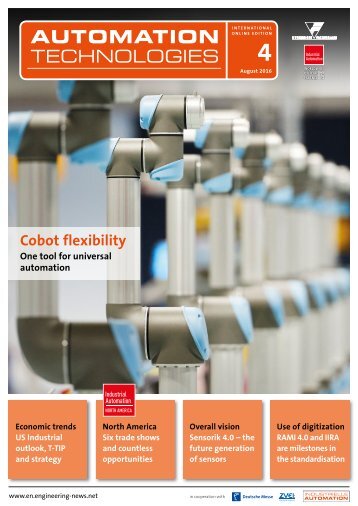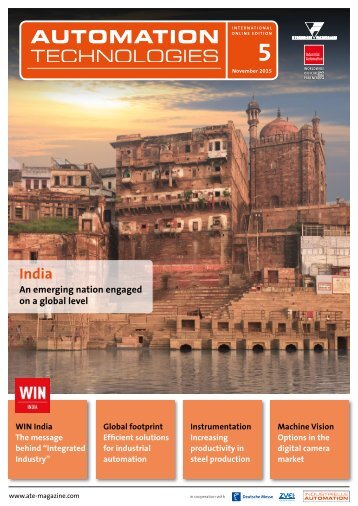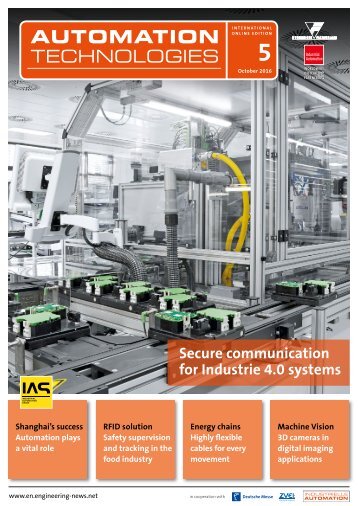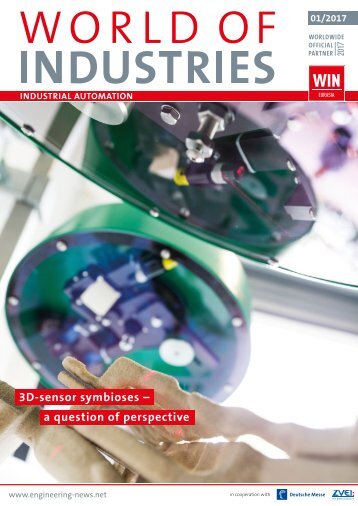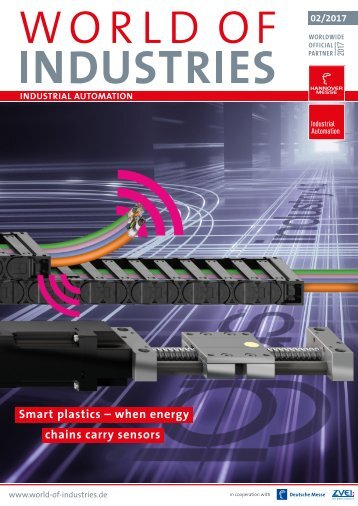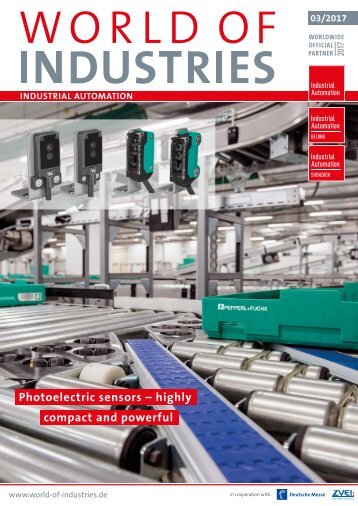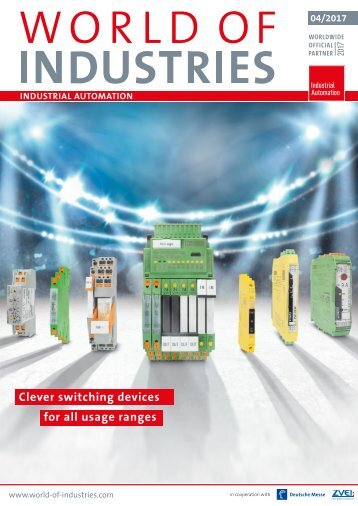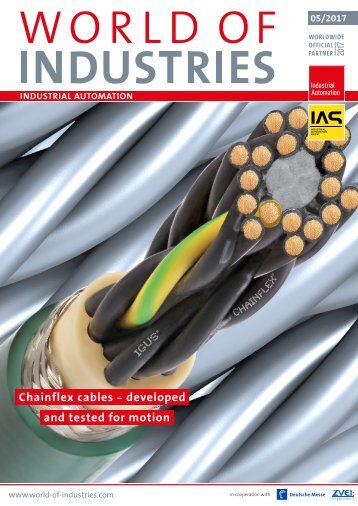WORLD OF INDUSTRIES 4/2020
- Text
- Logistics
- Terminal
- Measuring
- Automation
- Sensor
- Industries
- Capacitive
- Industrial
- Measurement
- Sensors
Galactic: innovative
Galactic: innovative capacitive sensors for industrial use AUTOMATION In the form of industry-optimized models, such as those developed by Micro-Epsilon, capacitive sensors today achieve top performance in harsh industrial applications. They measure with the highest precision down to an accuracy in the submicrometer range and can also be used in environments in which fluctuating temperatures or magnetic fields occur. Capacitive displacement sensors mainly determine changes in displacement and position of conductive objects. Here, Micro- Epsilon applies its expertise in the development of innovative capaNCDT sensors from 50 years of company history. This is how these sensors, which originally were assigned to clean environments, have become stable, high precision measuring systems for industrial applications. How does the capacitive displacement sensor work? Capacitive sensors measure changes of an electrical property described as capacity. This is a body’s or conductor arrangement’s ability to store electrical charge. Capacitive sensors from Micro- Epsilon are based on the principle of the ideal plate capacitor. The electric field is only located between the two conductive objects in the active measuring range, i.e. between the sensor and the con- Author: Dipl.-Ing. Stefan Stelzl, Product Manager, Micro-Epsilon Messtechnik GmbH & Co. KG, Ortenburg, Germany ductive measurement object. The sensor electrode is fed with alternating current of constant frequency and amplitude which is why the amplitude of the resulting voltage is proportional to the distance of the two objects. Capacitive capaNCDT sensors are available in different models. The cylindrical version is the most common design. New, cylindrical displacement sensors from Micro-Epsilon have a mounting thread and can be easily screwed in or fixed in place using a nut. In addition to the cylindrical design, flat sensors are available which require significantly less installation space. The PCB model of capacitive sensors is ideally suited to installation in narrow, confined spaces. Capacitive sensors cover measuring ranges of 50 µm to 10 mm and are therefore suitable for multiple measurement tasks. The sensors are either equipped with plug-in connection or integrated cable. Different housing materials and manufacturing technologies are used for sensor construction. As well as the standard stainless steel/Invar design, sensors made from titanium, which are suitable for measurements in vacuums, are also available. Individual sensors and controllers In addition to the standard sensors, Micro-Epsilon offers the possibility to modify sensors and controllers according to the customer’s requirements, among other things, with respect to cable length, sensor design or modified measuring ranges. In areas where sensors are to a great extent exposed to shocks, thread sensors offer an ideal installation option. These are firmly screwed to the respective machine and prevent the sensor from slipping due to strong vibrations. This is how the measurement results remain precise on a long-term basis even in challenging environments. They are specially designed for machine building applications where the sensors must be mounted at a defined distance, e.g., on walls, in bore holes or even very deep drill holes. 10 WORLD OF INDUSTRIES 2020
The extraordinary temperature stability of sensors is demonstrated by measurement tasks for space research. In areas away from the sun, the lowest temperatures are down to -271°C, which is just above absolute zero and therefore in the cryogenic temperature range. However, in trajectories where the components face the sun, they become extremely hot with temperatures rising rapidly to more than 200°C. KRP Mechatec GmbH is an engineering services company that has specialized in aerospace structural design, analysis and testing, as well as fusion research. In cooperation with Micro-Epsilon, a measuring platform for high precision thermal deformation measurement of space components has been co-developed. The experimental verification of thermo-elastically stable structures requires a measurement platform with much higher thermal stability than can be demonstrated by the components to be investigated. In order not to falsify measurement results by deformation of the measuring platform itself, the use of extremely thermally stable sensors and ULE (ultra-low expansion) materials such as Clearceram and Zerodur are necessary. This is a glass ceramic that has extremely low thermal expansion and length stability. One of the measuring tasks is to determine the thermal expansion of star sensor carriers. Star sensors are optical measuring instruments based on CCD elements or other optical sensors. Their task is to search and determine the direction of bright celestial bodies. For aerospace, star sensors are of the utmost importance. They are necessary for determining the attitude and attitude control. For example, satellites also use the stars in the sky to position themselves in space. Star sensors must therefore provide micrometer-accurate measurement results in order to derive from them the exact positioning of satellites in space. Therefore, the supports on which star sensors are mounted must not be subjected to any thermal deformation. The behavior of the material used is therefore tested using high precision capacitive sensors from Micro-Epsilon for displacement, distance and position measurement. Measuring systems for the industry 01 The capaNCDT 61x0/IP capacitive displacement measuring system detects parameters such as displacement, distance, deflection, expansion, and deformation of conductive targets Temperature-stable results In industrial environments, the temperature often fluctuates very strongly. Materials expand with high temperatures and contract with lower temperatures. This is why the distance between sensor and measurement object can change too. In areas with strongly fluctuating temperatures, capacitive sensors from Micro-Epsilon offer, in the range from -270 °C to +200 °C, extremely high temperature stability of 5 ppm. Long-term stability is ±0.002 %FSO/month. For much higher temperature ranges, special sensor designs with ceramics can be provided. Capacitive sensors in space research In addition to a wide, industry-optimized sensor range, Micro-Epsilon offers special systems which were designed for industrial requirements. The capaNCDT 61x0/IP capacitive displacement measuring system is suitable for inline quality assurance of production processes, and for control of plant and machinery. Protected to IP68, this measuring system is therefore suitable for many industrial measurement tasks. Fluctuating temperatures and magnetic fields are no match for this capacitive system. It is specially designed for industrial measurement tasks where high precision is required. It detects parameters such as displacement, distance, deflection, expansion, and deformation of conductive targets. The capaNCDT 61x0/IP includes a sensor, sensor cable and controller. Calibrated at the factory, the system is immediately ready for use with no on site calibration necessary. Even after replacing the sensors, no recalibration is required. Data output is via current, voltage or digital RS485 interface. Its aluminum die-cast housing protects the controller from dust and humidity. As the sensor cable is extremely robust, it provides resistance to treading and high temperatures. The cable length is designed for large distances up to 8 meters. More than 15 different sensor models are available for different measurement tasks. Board sensors, cylindrical sensors and models with thread are the three basic sensor types from which the customer can choose depending on the respective installation scenario. All capacitive sensors from Micro-Epsilon are compatible with all controllers. Conclusion Almost no other system is able to detect linearity deviations up to 0.005% and better across the whole measuring range. Capacitive sensors are often used for applications which require highest precision and stability with a resolution down to the submicrometer. Thanks to their innovative technology, capacitive sensors from Micro- Epsilon deliver measured values down to the nanometer range even at extreme temperatures and are suitable for operating conditions ranging from cryogenic temperatures or ultra-high vacuum to dusty industrial environments or clean room applications. Another strength is the combination variety. The various interfaces such as analog, Ethernet and EtherCAT enable connection to modern machines and systems. Settings can be made via the user-friendly web interface. Photos: Micro-Epsilon www.micro-epsilon.com 02 Capacitive capaNCDT sensors are available in different models, cover measuring ranges of 50 µm to 10 mm and are therefore suitable for multiple measurement tasks WORLD OF INDUSTRIES 2020 11
- Page 1 and 2: www.world-of-industries.com CYBERSE
- Page 3 and 4: EDITORIAL How do we come together?
- Page 5 and 6: W RLDWIDE NEWS Innovative spirit Th
- Page 7 and 8: the door In times of increasing dig
- Page 9: tials as well as on automating more
- Page 13 and 14: 01 Thanks to the gripper, the Klipp
- Page 15 and 16: Machine Vision USB3 Camera sets new
- Page 17 and 18: Such interference parameters or so-
- Page 19 and 20: Fast, efficient and comprehensive e
- Page 21 and 22: sidering growing internationalizati
- Page 23 and 24: 01 The crane picks up the pallets f
Inappropriate
Loading...
Mail this publication
Loading...
Embed
Loading...

